{This post is sponsored by Pacific Resources International (PRI)}
Fall is the season for rose hips, and one of my favorite things to make with them is rose hip syrup! It’s a delicious foraged recipe that can be served drizzled on pancakes or ice cream, or stirred into cocktails. Rose hip syrup can also be used medicinally for immune support!
Pacific Resources International (PRI) Honey
To make this rose hip syrup I used pure Australian Organic Raw Honey from Pacific Resources International (also known as PRI).
I love this honey because it’s cool processed so that it retains all of the health benefits of raw honey, including some of the propolis, wax and pollen.
It is also organic, which can be hard to find when it comes to honey! It gives this rose hip syrup an extra boost of amazing goodness.
If you want even more medicinal benefits you could use PRI Manuka Honey instead!
PRI Stay-Well Kit
Pacific Resources International also has a new Stay-Well Kit that is perfect for fall and winter gift giving. It includes some of their most popular Manuka honey and propolis products that help to support the immune system and keep you well!
The Stay-Well Kit includes:
- Manuka Honey 20+
- Manuka Lemon Lozenges
- Propolis Original Cough Elixir
- Propolis Oral Spray
- Manuka Lip Balm
- Wooden Honey Spoon
How to Make Rose Hip Syrup
This rose hip syrup is very easy to make! The hardest part is finding and collecting the rose hips, which actually isn’t that hard at all.
Where to Get Rose Hips for Syrup
Rose hips are the fruit of the rose plant and can be found throughout the fall and sometimes even into the winter season.
Foraging for rose hips is generally fairly easy as they are a common plant, both cultivated and in the wild. You will need one cup (or more) of fresh rose hips to make this syrup.
If you don’t have access to fresh rose hips, or if they are out of season, you can use dried rose hips.
Make the Rose Hip Tea
After you’ve collected the rose hips it’s time to make the rose hip tea.
First remove any stems, leaves, and brown flower bits (called the calyx) from the hips, if needed. Then give them a rinse before putting them in a food processor.
Pulse several times to break up the rose hips into smaller pieces.
Put the broken up rose hips into a pot with water. A ratio of two parts water to one part rose hips works well.
Bring it to a boil, then reduce the heat and simmer for 15-20 minutes, or until the water has reduced by about half.
Turn the heat off and let the rose hip tea cool for a bit while it continues to steep. Then strain out the rose hips with a very fine mesh sieve.
Rose hips contain small hairs that are irritating to the digestive tract, so it’s really important to strain them out. If you don’t have a super fine mesh sieve, then line a strainer with a few layers of cheesecloth.
You can squeeze the rose hips to get all of the liquid out if need be.
Once you strain out all of the larger rose hip solids, rinse out the mesh sieve (and the cheesecloth if you’re using it), and strain the tea through again.
Take a good look at the rose hip tea, and if you still see tiny hairs floating around it’s a good idea to strain it again, maybe though even more layers of cheesecloth.
You really want to make sure to get all of those hairs out! Mine looked good after straining twice through my super fine mesh sieve.
Make the Rose Hip Syrup
Now it’s time to make the syrup! This is the easy part.
Make sure that the rose hip tea has cooled down to room temperature, then add the honey. An equal volume of honey to tea is usually perfect, so if you have one cup of rose hip tea, then add one cup of honey.
Stir to combine the honey with the tea, and then you have some amazing rose hip syrup!
Store the rose hip syrup in the refrigerator and it will keep for up to 6 months. It can also be frozen for longer storage.
Rose hips have varying levels of natural pectin, and if you happen to get some with a lot of pectin it can sometimes cause the syrup to become more jelly-like, especially after being refrigerated.
Edible Uses of Rose Hip Syrup
This rose hip syrup has many great uses!
For culinary purposes it can be used just like any other syrup – drizzled over pancakes, waffles, yogurt, or ice cream.
Rose hip syrup also makes amazing cocktails! Try it in this rose hip whiskey smash, or this rose hip highball.
If it becomes jelly-like in the refrigerator, it still be used in the same way as syrup, with the added benefit of being spreadable like jelly!
For more delicious culinary syrups and honeys, see my Forsythia Flower Honey Syrup and Lilac Flower Infused Honey recipes.
You may also be interested in my Fermented Honey Cranberries!
Medicinal Uses of Rose Hip Syrup
Rose hips are extremely high in vitamin C and are excellent for immune support.
Raw honey is full of powerful antioxidants, nutrients, and enzymes that are still intact because it has never been heated.
This makes rose hip syrup a great choice to use for coughs, sore throats, or other cold and flu symptoms.
I recommend adults take 1-2 tablespoons of rose hip syrup 2-3 times per day at the onset of a cold or flu, and throughout the duration of the illness. It is also safe to be taken as a preventative.
For another foraged syrup made with honey that is good for coughs and sore throats, see my Pine Needle Cough Syrup recipe.
Rose Hip Syrup for Children
Rose hip syrup is safe and an excellent herbal choice for children over the age of one.
Just be sure to give children a smaller dose based on their size. For small children (ages 1-5), 1-2 teaspoons twice per day is good. That amount can be increased as the child grows.
Rose hip syrup should not be given to children under the age of one due to the raw honey.
More Honey Based Herbal Remedies
Support your immune system with these honey based herbal remedies!
- Manuka Honey Vinegar Elixir
- Elderberry Syrup
- Pine Needle Cough Syrup
- Herbal Oxymel with Sage & Ginger
- Fermented Honey Garlic
- Fermented Elderberry Honey
Rose Hip Syrup with Honey
Equipment
Ingredients
- 1 cup fresh rose hips or 1/2 cup dried rose hips
- 2 cups water
- 1 cup organic raw honey
Instructions
- Remove any stems, leaves, and brown flower bits (called the calyx) from the hips, if needed, and rinse them well.
- Put the rose hips in a food processor and pulse them several times to break up the rose hips in smaller pieces. This step may not be necessary if you are using dried rose hips that are already broken up.
- Add the rose hips and water into a small pot with water and and bring to a boil. Then reduce the heat to medium low and simmer for 15-20 minutes, or until the water has reduced by about half.
- Turn the heat off and let the rose hip tea cool for a bit while it continues to steep, mashing a few times with a potato masher to extract all of the rose hip juice.
- Strain out the rose hips with a very fine mesh sieve lined with a few layers of cheesecloth. Squeeze the rose hips to get all of the liquid out if need be. Rinse out the mesh sieve (and the cheesecloth if you’re using it), and strain the tea through again. You may even want to do this a third time to remove all of the irritating hairs.
- Once the rose hip tea has cooled down to room temperature, stir in the honey.
- Store the rose hip syrup in the refrigerator and it will keep for up to 6 months. It can also be frozen for longer storage.
Notes
- If you end up with less than one cup of rose hip tea, you can add more water to the rose hip mash and boil it again, repeating the simmering and straining process.
- Rose hips have varying levels of natural pectin, and if you happen to get some with a lot of pectin it can sometimes cause the syrup to become more jelly-like, especially after being refrigerated.
- To use medicinally, I recommend adults take 1-2 tablespoons of rose hip syrup 2-3 times per day at the onset of a cold or flu, and throughout the duration of the illness. It is also safe to be taken as a preventative.
- Rose hip syrup is safe for children over the age of one. Just be sure to give children a smaller dose based on their size. For small children (ages 1-5), 1-2 teaspoons twice per day is good. That amount can be increased as the child grows.
- Rose hip syrup should not be given to children under the age of one due to the raw honey.



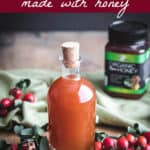

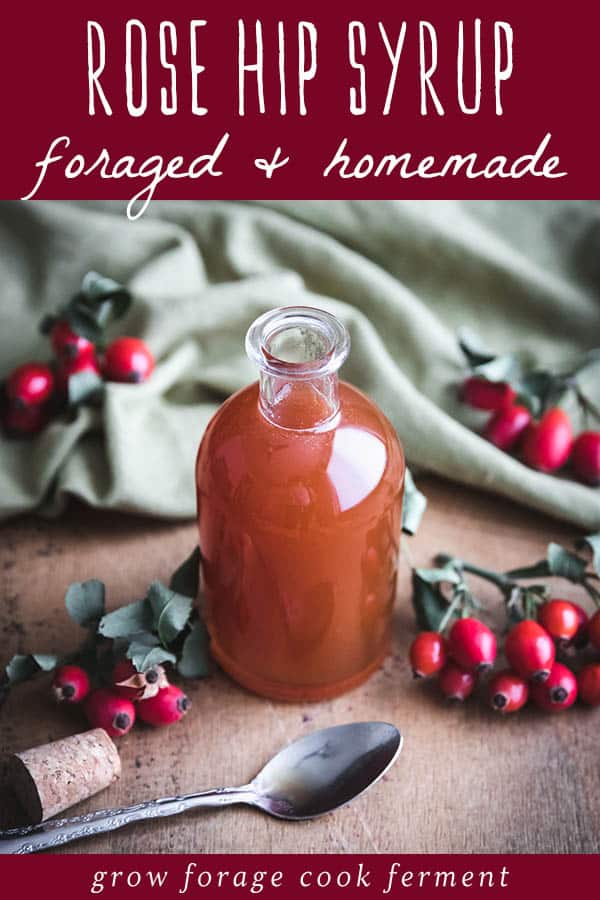
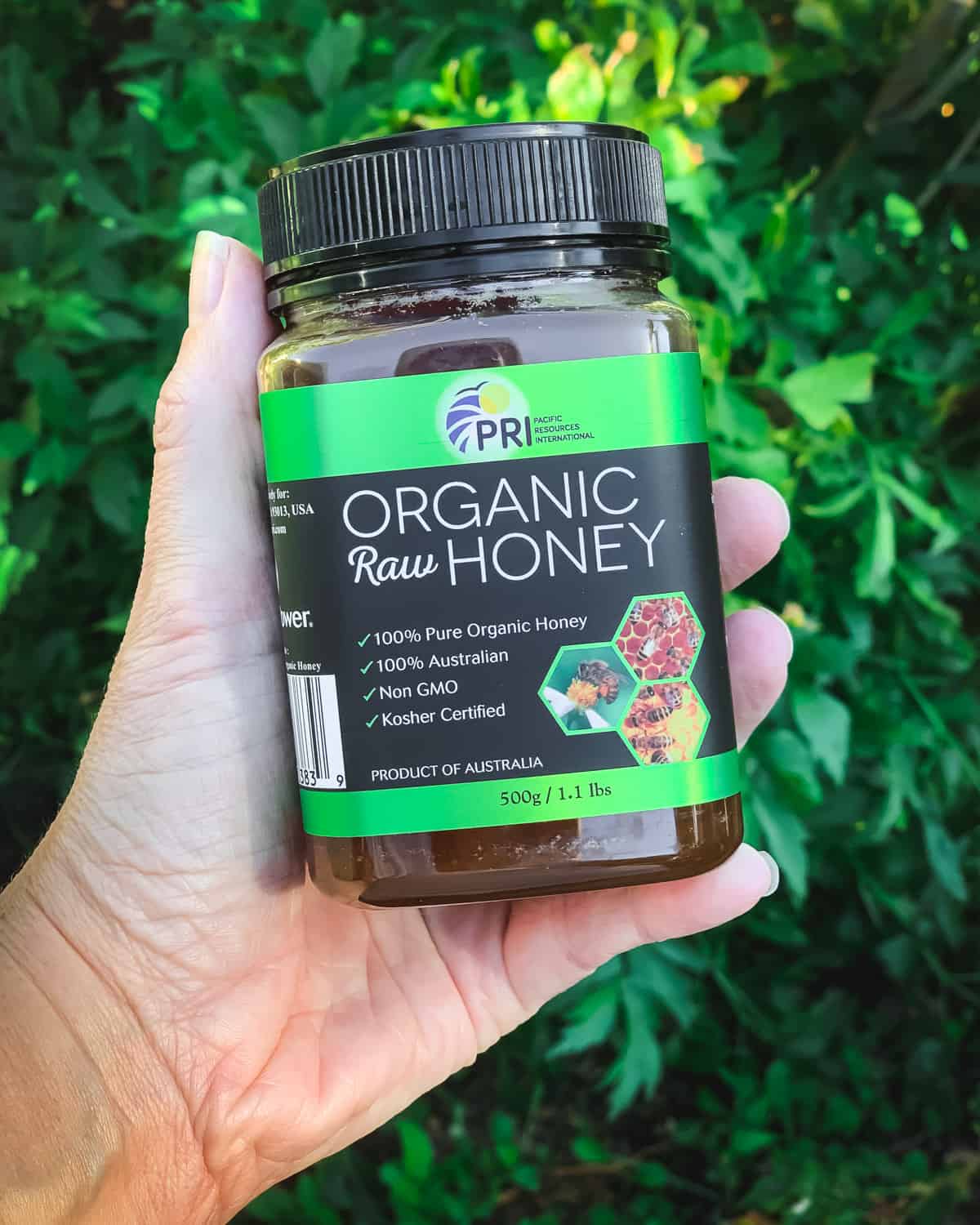
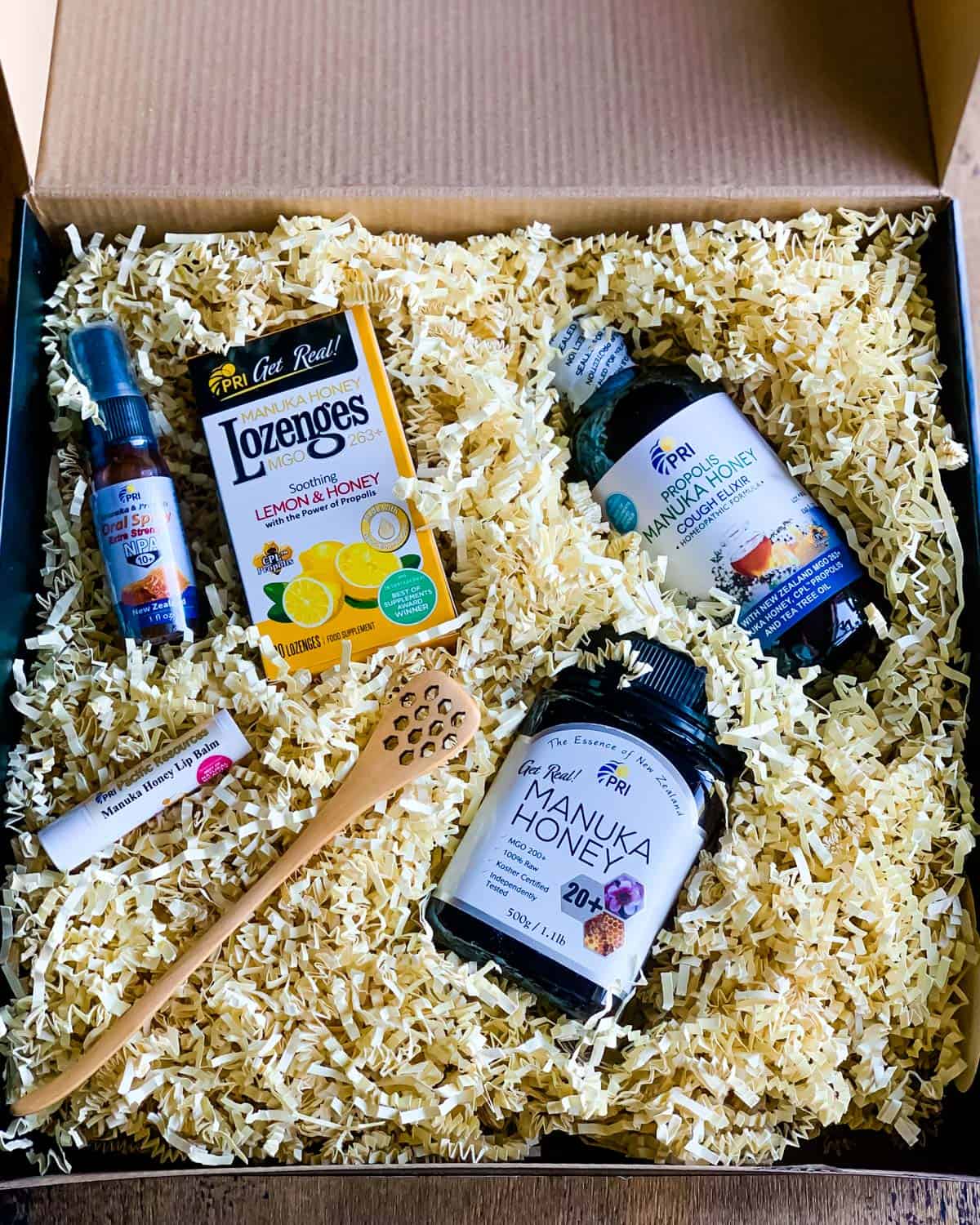
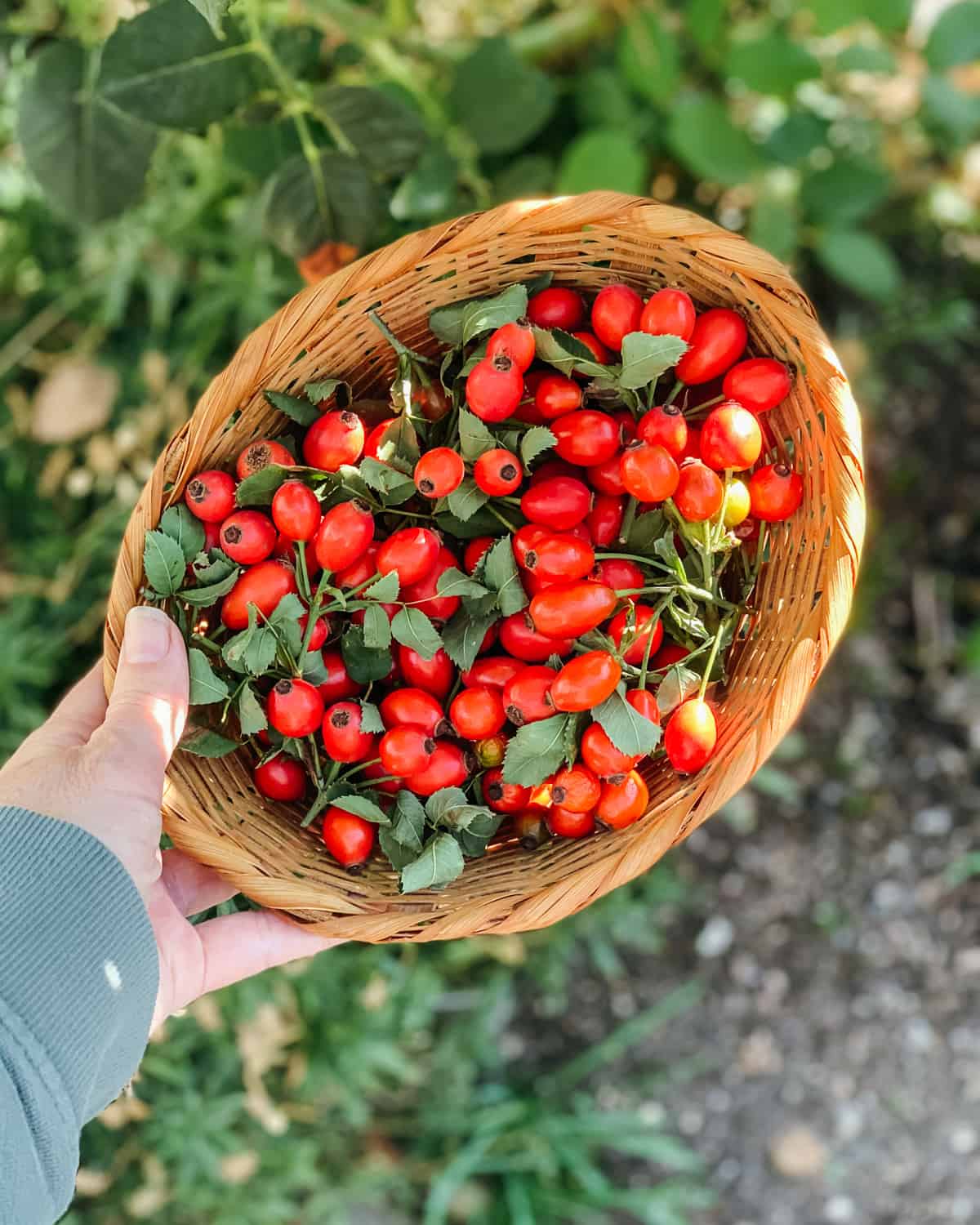
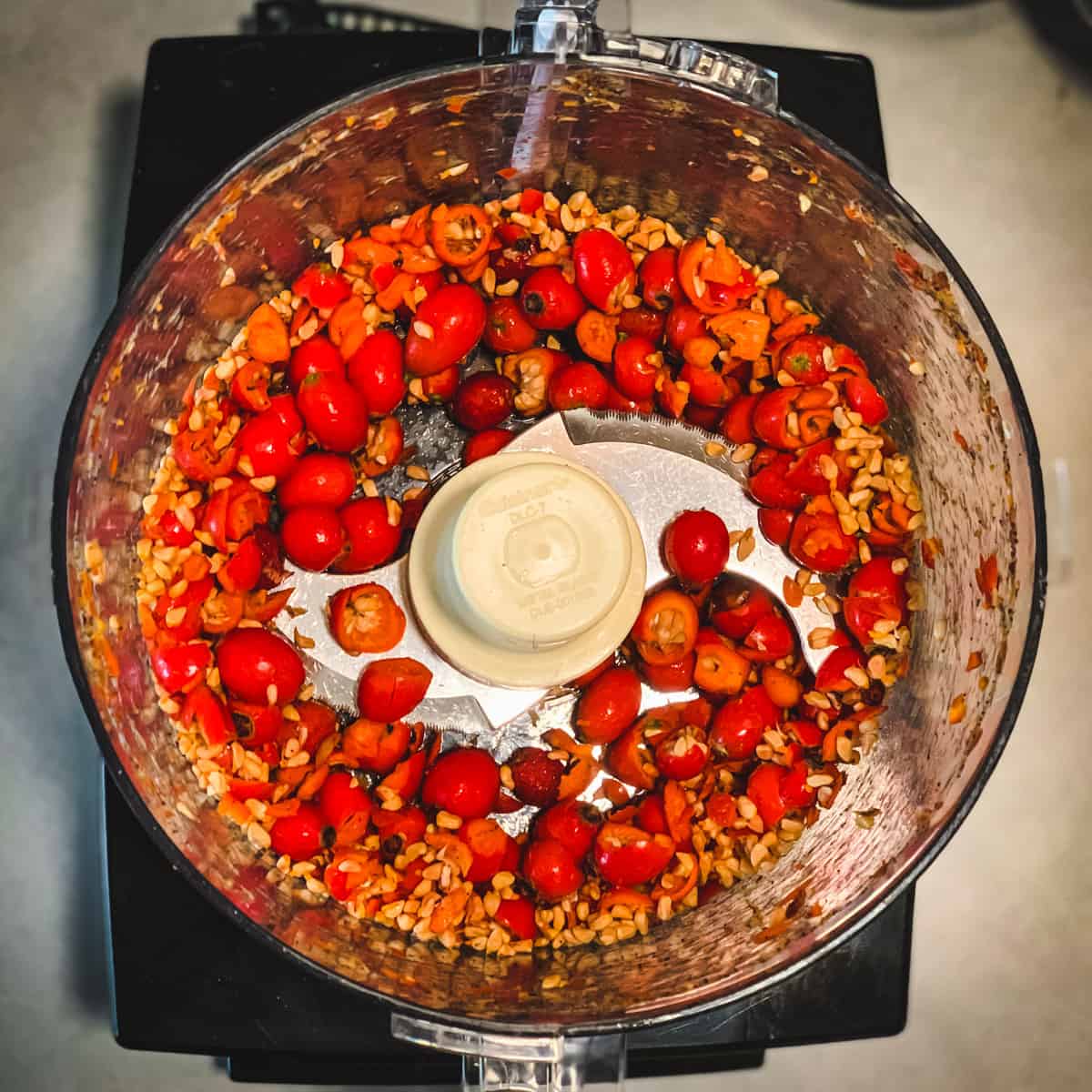
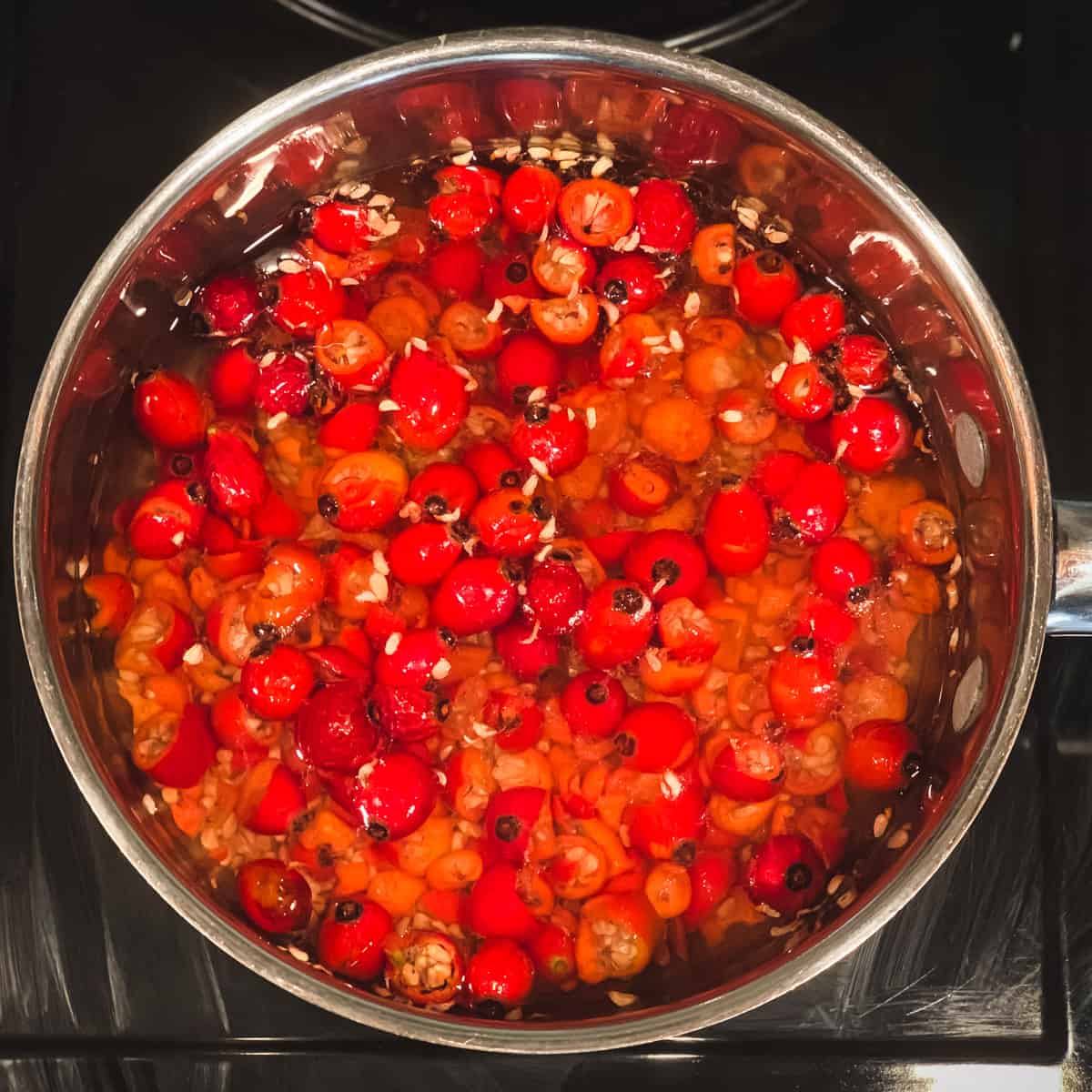
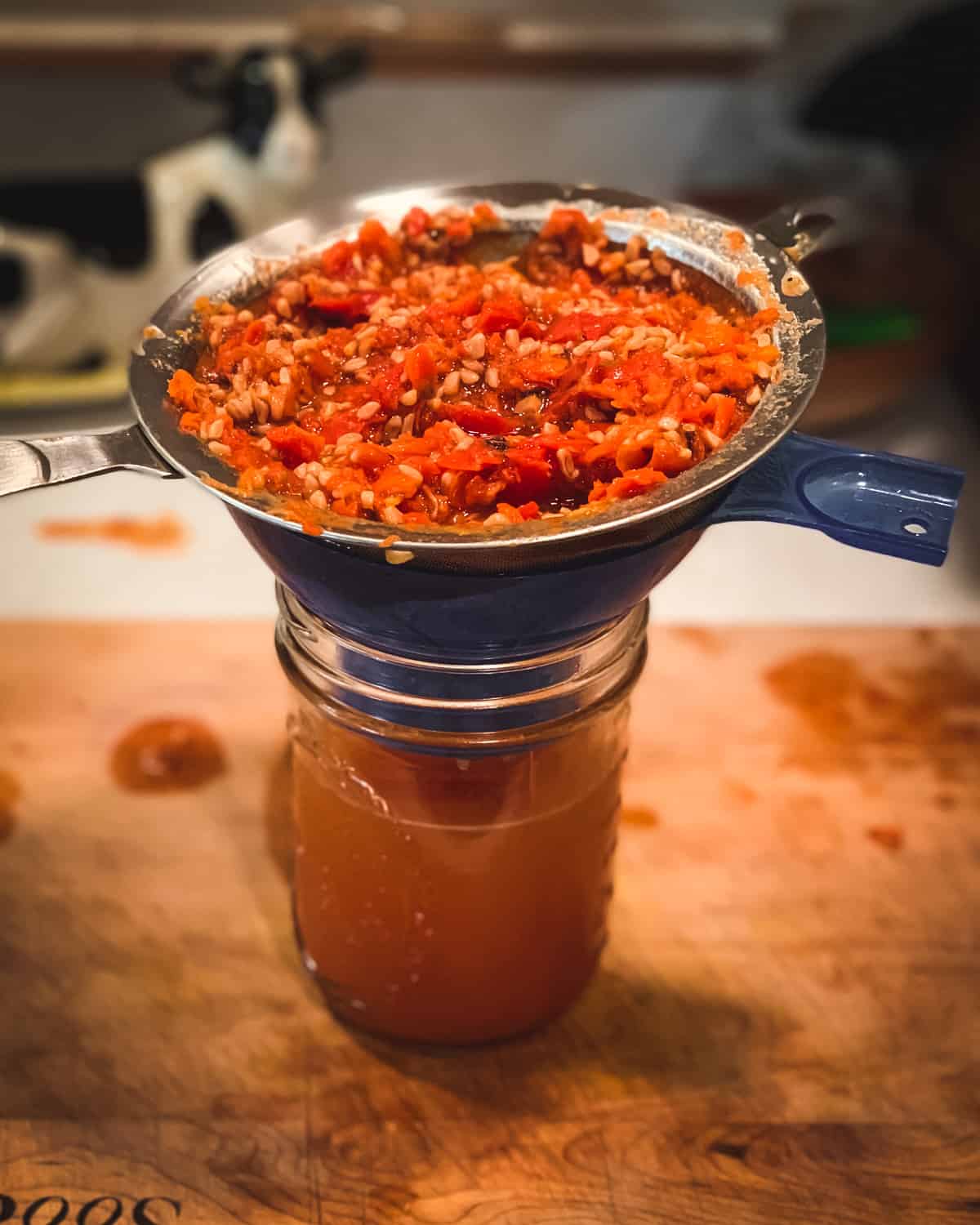
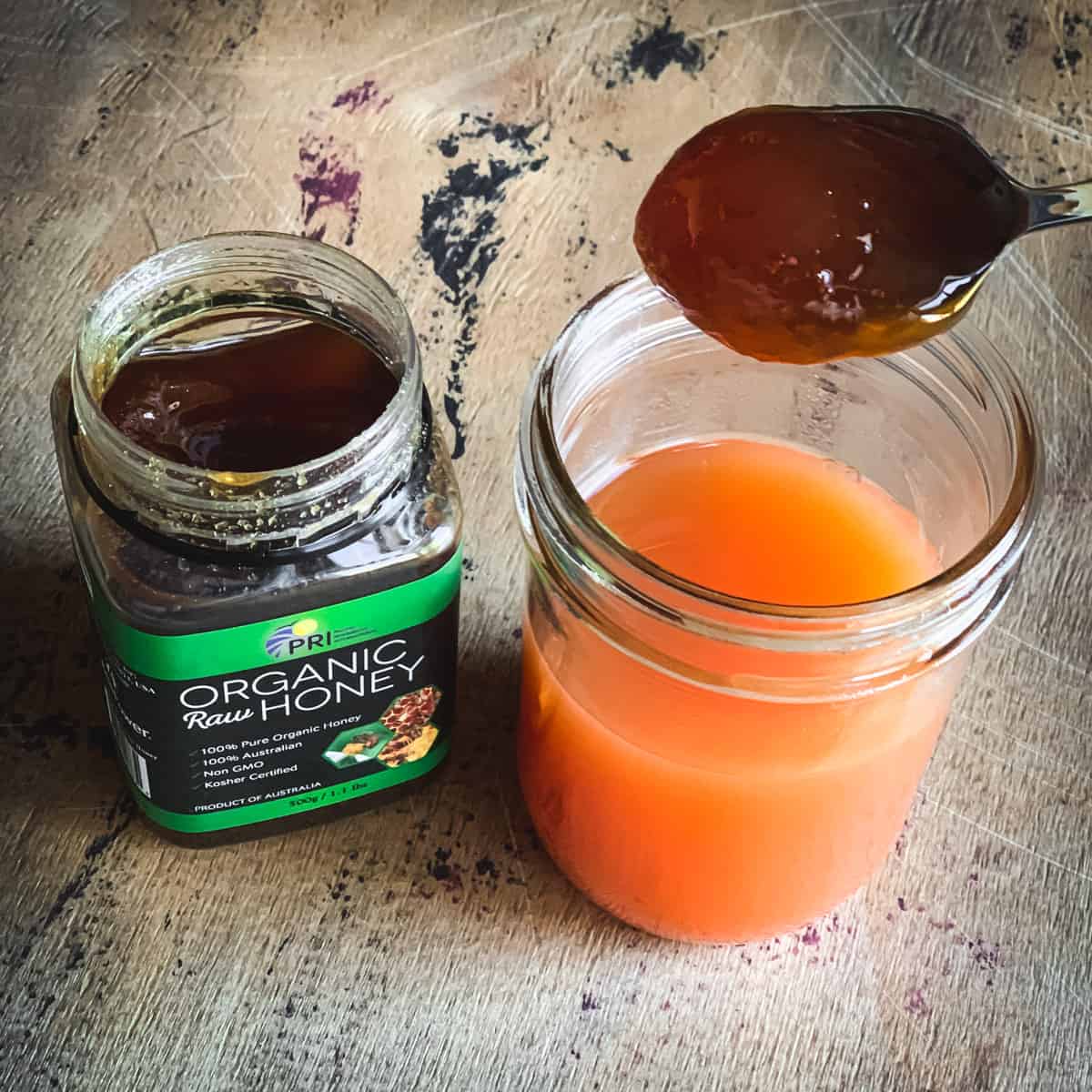
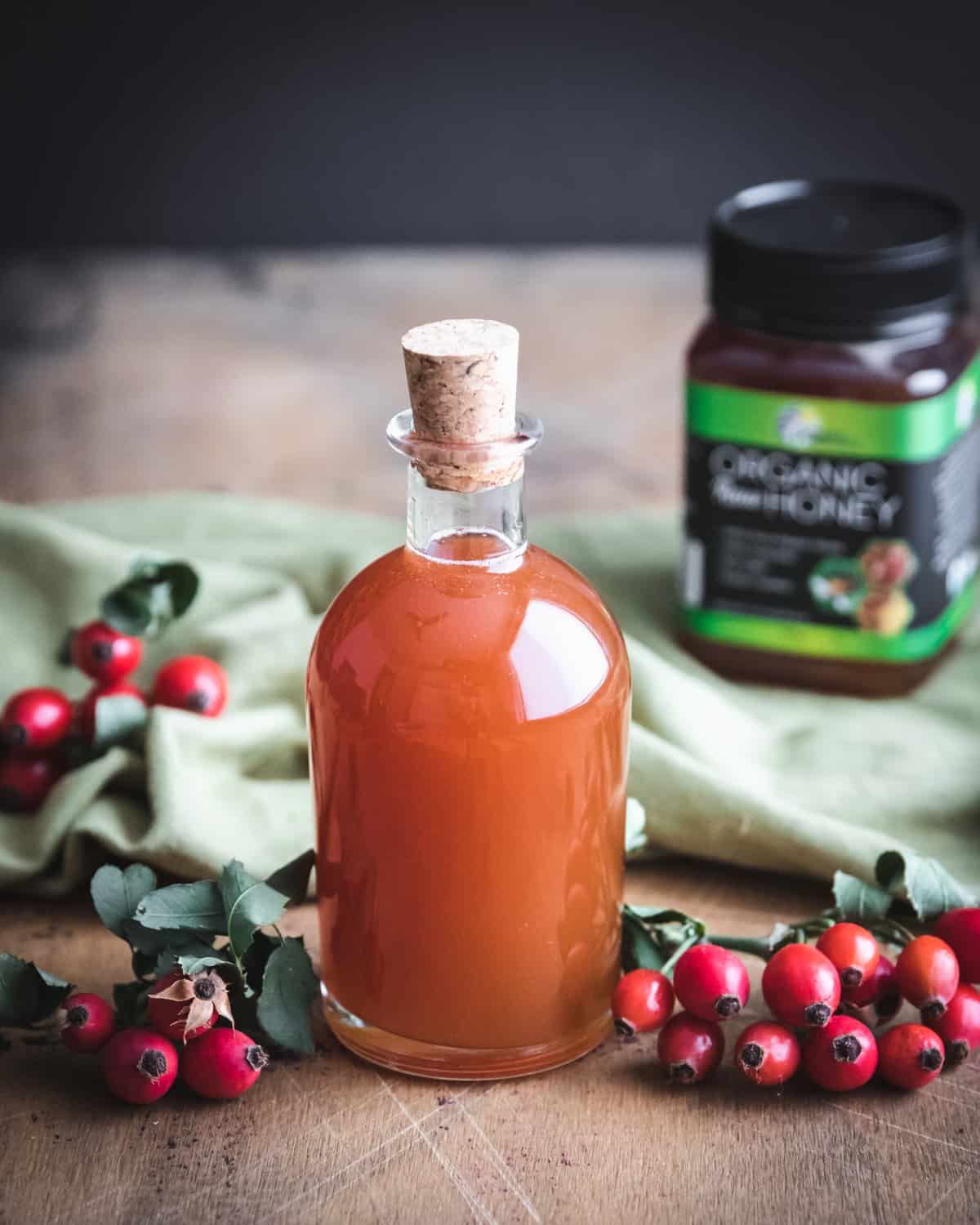
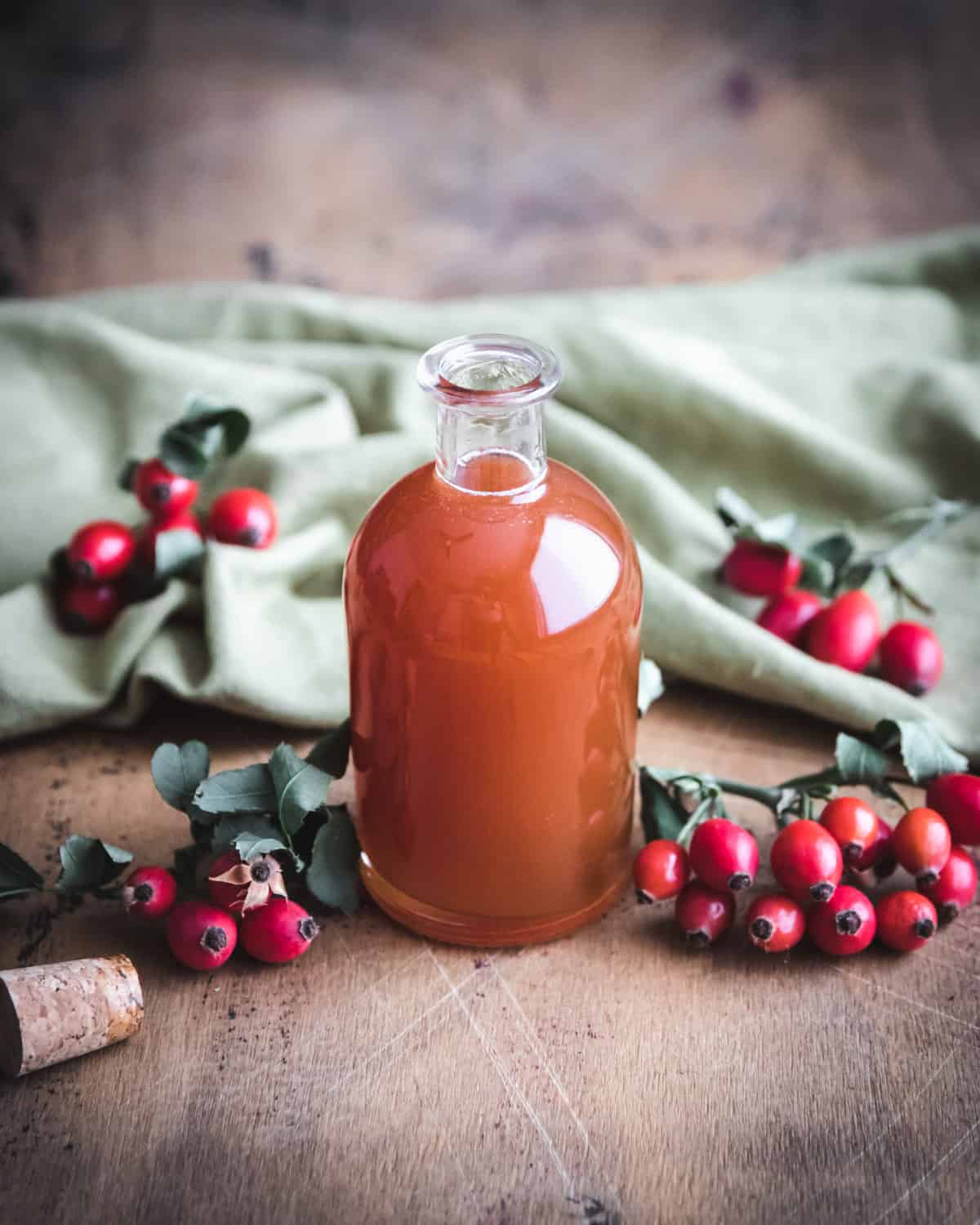
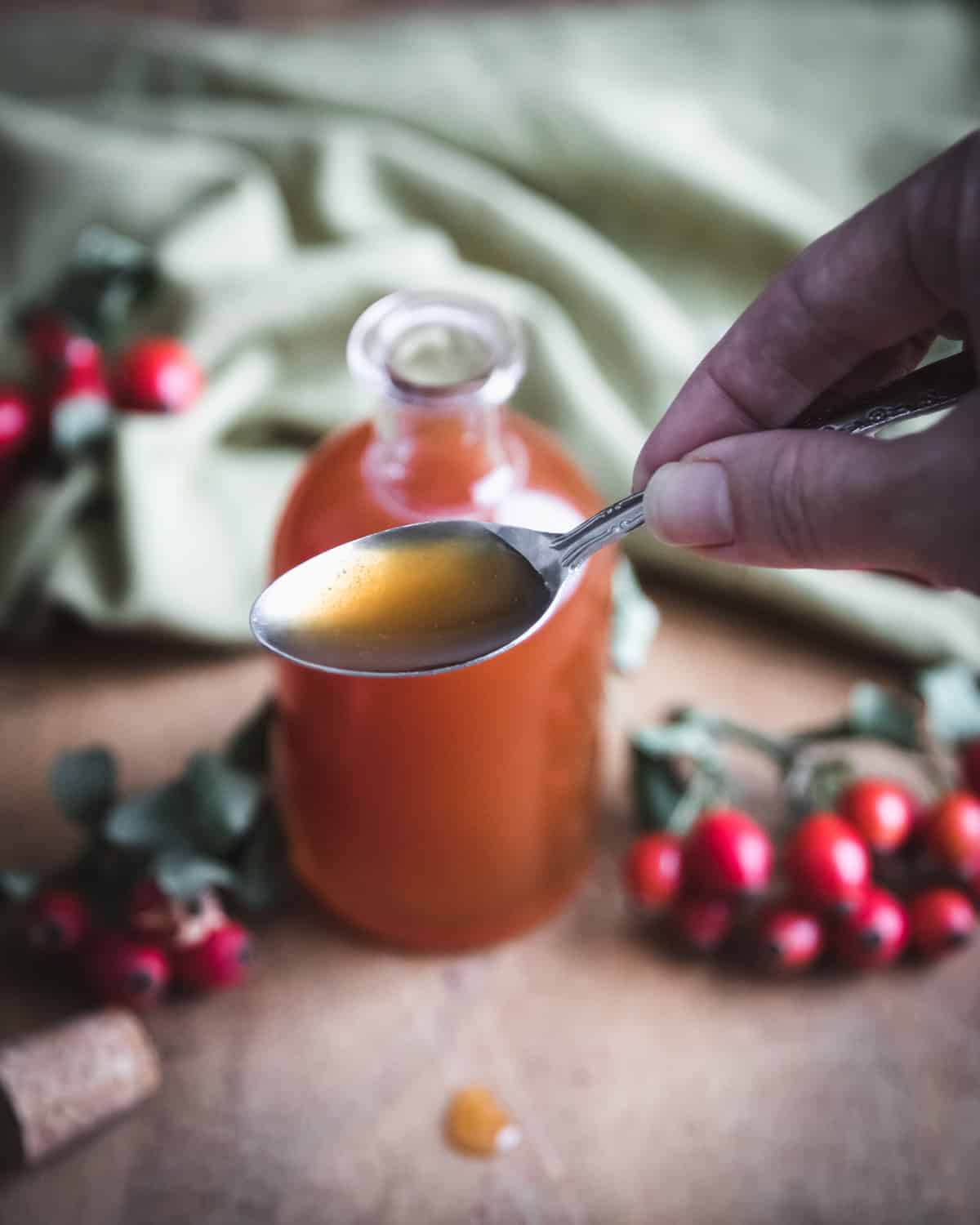
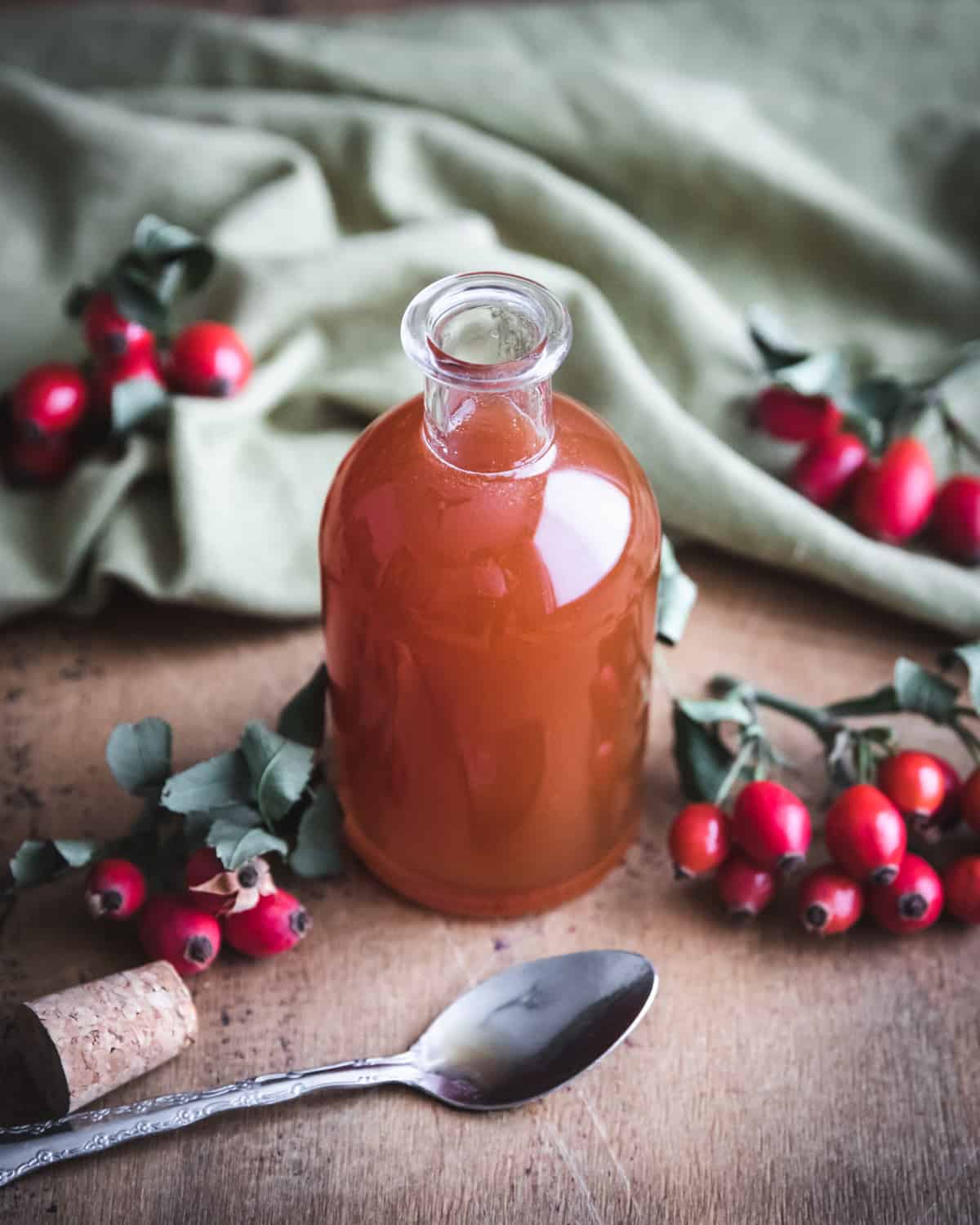
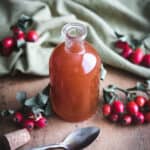

Thank you for sharing this recipe :) I made rosehip syrup with sugar two years ago but I am keen to try it with honey this year!
You’re welcome, Jenna. Enjoy!
You can do the final strain through a coffee filter.
Thanks for sharing! That’s a good idea!